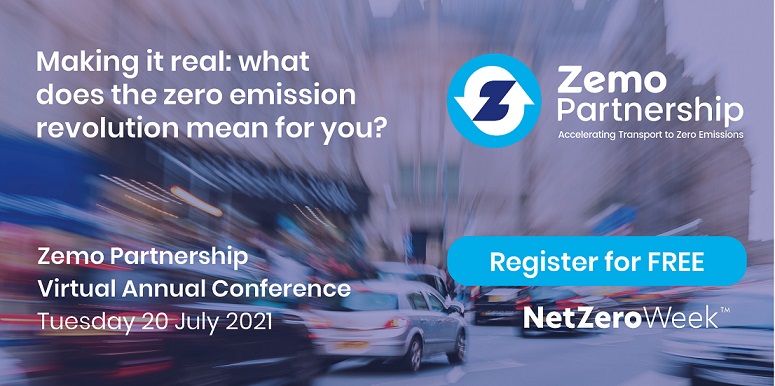
It’s building up to be quite a moment for transport! If the rumblings are correct, we’re only days or even hours, away from learning what’s in the Government’s decarbonisation plan for the sector.
It will need to be radical. It will have to enter areas of policy that haven’t been touched, or were deemed too difficult to touch, before. The transport minister responsible, Rachel Maclean, signalled as much when she said to the Transport Select Committee that delays in publishing the plan were because greater ambition is needed to meet the challenges that have been set.
Recent developments suggest that the tectonic plates are shifting. Battery electric car sales topped 10% of the market last month again. Electric vans and motorcycle sales are also beginning to take off (more than a third mopeds sold this year were electric) and one motor company after another is announcing a deadline for their transition to being ‘fully electric’ and/or fossil-fuel free. Vauxhall (and sister firm Opel) has become the latest, announcing it will build only electric vehicles from 2028.
This news comes hard-on-the-heels of Nissan’s announcement of investments in a flagship ‘Electric Vehicle Hub’ in the North-East, including a battery ‘giga-factory’, and the Stellantis/Vauxhall announcement that its Ellesmere Port factory will transition to the production of electric vans.
But introducing new, zero tailpipe emission technology is only a part of the challenge. The technology will also have to be used in the right ways and be adaptable to changing behaviour. We need to consider not just the tailpipe emissions, but the full life cycle and sustainability impacts of the technology choices we make. We’ll certainly need significant behaviour changes; we may need to find ways to travel less, certainly to share more and adopt active travel habits.
The suggestions are that the decarbonisation plan will approach the challenge in a far more collaborative and joined-up way than before; no longer a series of discrete plans for aviation, maritime, roads or urban and rural futures, but an integrated approach towards multi modal mobility in towns across the UK and beyond, powered by new data transparency and a range of sustainable energy pathways.
It will be a plan to bring a new approach to shared and public travel, to the design for places and communities and, ultimately, deliver real benefit to people. This breadth of partnership was part of the reason we changed the name of my organisation, Low Carbon Vehicle Partnership – to Zemo Partnership earlier this year in recognition of heightened, net zero, ambition and also reflecting that vehicles are just one of the jigsaw pieces in the puzzle of creating a mobile and decarbonised society.
This need for wider perspectives is why I was so pleased to be invited to join the Greener Transport Council because, of all times, this is one to think differently and collectively; to challenge preconceptions, residual ‘silo mentality’ and long-held beliefs. A colleague of mine often comments on ‘being an engineer for over 30 years and still learning’. Being in the room with such preeminent transport experts as are taking part in the Council, is undoubtedly one of the best ways to go on learning.
We’re not going to be successful in decarbonising transport by 2050 by doing things in the same way as we’ve always done. We’re going to need challenging, innovative solutions on all fronts.
We’ll need thought-leadership and a credible and deliverable framework for decarbonising transport while ensuring this is also a fair and just transition. We’ll also have to build support for some of the politically challenging solutions needed. I believe the GTC initiative can help with this.
Greener Transport Solutions’ series of autumn webinars will be a good focal point for discussion and a chance to build consensus around where the opportunities are in the post-decarbonisation plan landscape.
But prior to that, one of the first chances to really scrutinise the new plan and to consolidate ideas and initiatives, will be at Zemo Partnership’s Annual Conference on 20 July. As the main transport-focused day in Net Zero Week (17-23 June) our event looks like being one of the first – and certainly one of the biggest – opportunities for a wide range of informed stakeholders to share thoughts on, and responses to, the transport decarbonisation plan.
The event is predicated on the idea that whatever is in the Government’s plan, it will have to be deliverable and we’ll have to take people along with it. ‘Making it Real’ (the Conference ‘tag-line’) aims to bring the challenges and solutions down to the individual and organisational level. What will it take for people to minimise their own travel carbon impacts and how can organisations also be inspired and motivated to play their part, while facing an array of commercial and other pressures?
So, the moment of change is upon us. The decarbonisation plan will provide the framework and impetus to enable change. And we must all seize the opportunities it presents and find ways to navigate the hurdles together in order to deliver on that plan…
Do join us on 20 July!

About the Author
This post was written by Andy Eastlake. Andy is the Chief Executive of the Zemo Partnership (formerly LowCVP). To find out more visit www.zemo.org.uk
